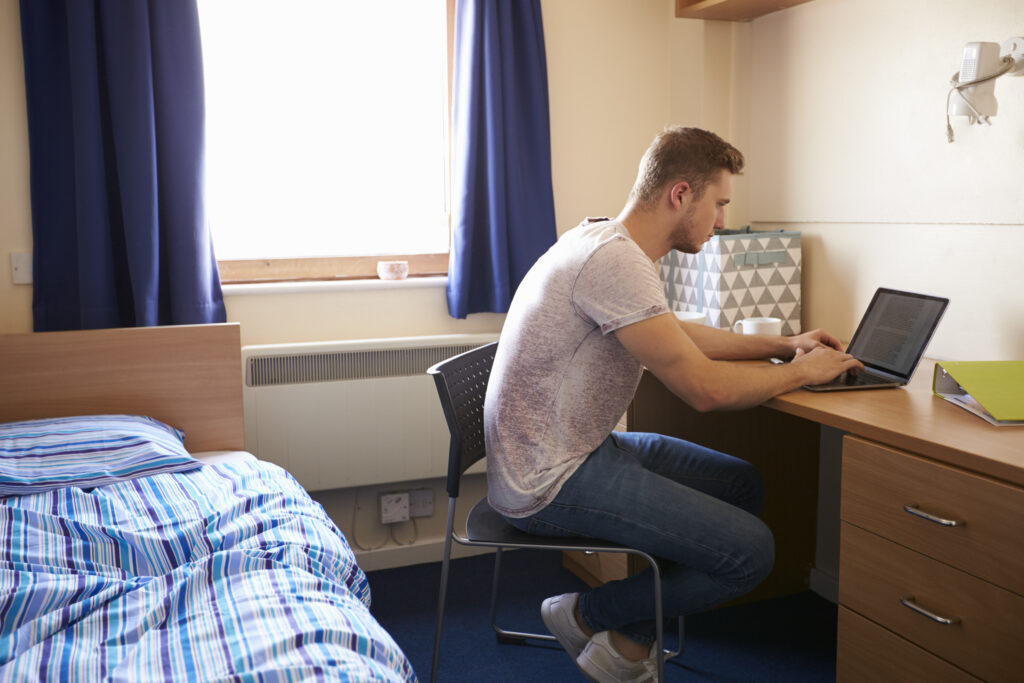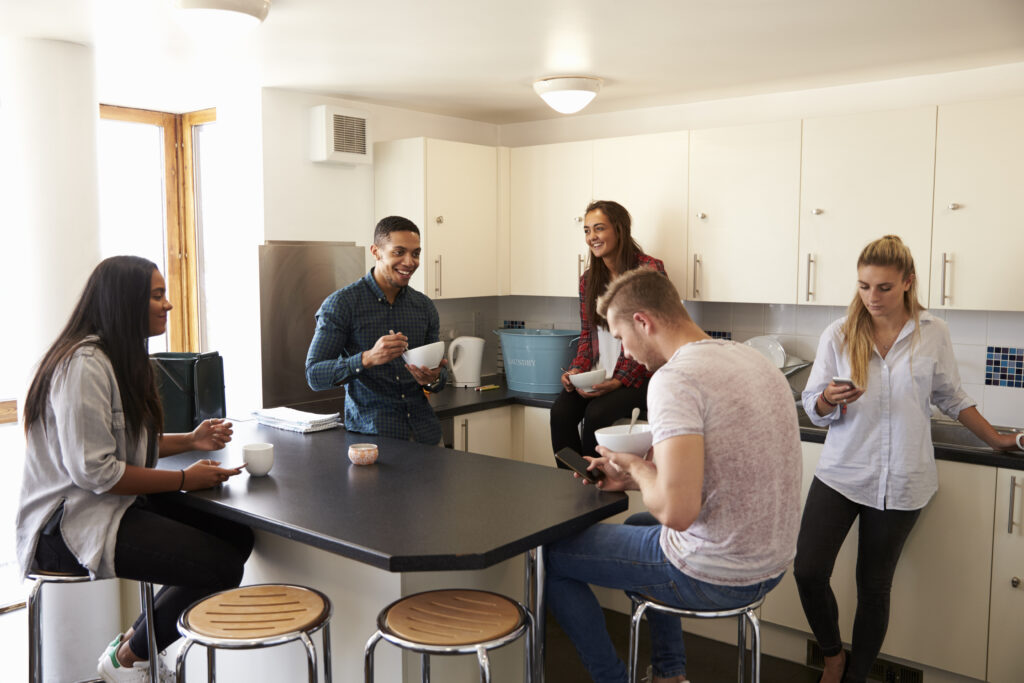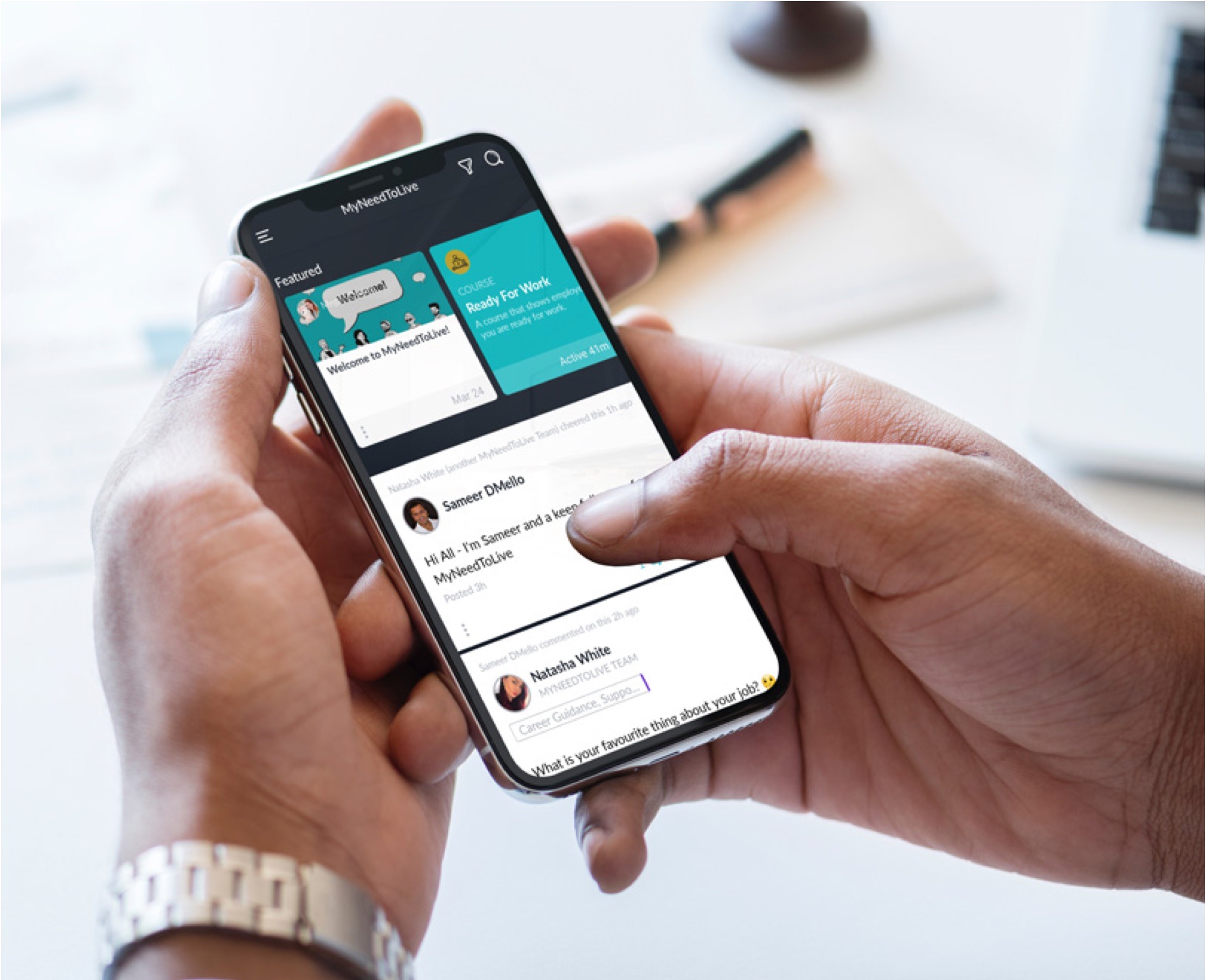Everyone experiences culture shock when they start university (especially international students). Whatever school or college you come from, it is all new and unnerving. Don’t worry, almost everyone quickly gets used to it.
Here’s some general advice to help you get started.

– Arrive in good time to settle into your accommodation and meet housemates etc before you have to register.
– Get yourself a diary and maps. A campus map is a must but you will need a city map too. Use them to make sure you know where you are supposed to be and when (don’t rely on other freshers having much more of a clue than you).
– Get yourself to induction meetings (IT facilities, library, students’ union etc), to enrolment, course briefings, meeting your tutors for the first time, at the right time and right place. Induction meetings can bore you to death, but you will see the faces in power and you might sit next to someone interesting.
– Find out where your lectures, seminars, tutorials and laboratory sessions are held and when; and where you hand in your essays etc.
– Start making your own academic timetable for the term or semester, noting dates that assessments have to be handed in (to avoid being penalised if it is late).
– Then submerge yourself in the first week’s entertainment, usually a Freshers’ Fair, endless discos, parties and bar promotion nights. This is also when all the clubs will try to recruit you but don’t be hassled and don’t waste money joining loads of ludicrous societies. Some people find freshers week seems to last for ever; but you can always use the time to explore the locality or do some background reading as well as party.

Once you have moved into your halls, settled into your bedroom and made friends with the people in your flat or on your corridor, you should consider how sharing the kitchen will work best. The kitchen is always the most social place in student flats. It’s important to make it a nice a place to be. Keeping it clean reduces arguments and tensions and cooking together is good for maintaining healthy friendships. Here are a few pointers:
– Find out what cooking facilities are available where you live (oven, rings, grill, microwave, gas or electricity?)
– How many others share them?
– Are there restrictions as to when they can be used?
– Make sure you know how to operate them properly.
– What about cooking utensils, pots, pans, cutlery, crockery etc?
– Make a list of things you know you will need and check whether they are provided. A basic list could start with:kettle, saucepan(s), frying pan, chopping, board/surface, sharp knife, bread, knife, wooden, spoon/spatula, ovenproof dish/bowl, dishtowels, tin, opener, jug, mugs, glasses, plates & bowls, cutlery, then add whatever else you, personally, cannot do without – fish slice, lemon squeezer, garlic press, potato peeler, cheese grater, sieve, corkscrew.
– What food storage space is available? Particularly, how big is the fridge and who uses it? It can make a big difference if there is somewhere secure for you to store supplies rather than shopping each day.
– Many students prefer to share buying and cooking food. It saves time and it’s good for bonding in a flat/house. It pays to be organised about it, especially where money is involved: set up a kitty, or a book where everyone writes down what they spend on communal food. And agree early what is communal and what is not: milk, coffee, cleaning stuff etc. Keep some sort of emergency supplies so that you will not starve if your cook gets a last minute invitation on the way home.
– If you have not done much cooking before, there are lots of student cook books. You’ll find them in supermarkets in university towns, or check out new and second-hand student cookbooks on Amazon.

Enrolment:
Put up with registration and enrolment, it only happens once a year (and the first year is the worst). It is vital to get your university (student card, which is your passport to libraries, the SU and maybe an actual key to the university buildings. Expect queues (take books, crosswords or try busking).
Make sure you take everything they ask for eg information about your fee status, original exam certificates. You will usually have to take all your certificates, including GCSE certificates, so get duplicates in advance if you have lost them (results slips are usually only accepted for the most recent exams). Take a pen and don’t lose your papers.
Take lots of passport photographs for ID, membership cards etc.
Have a good start to the year!
Student Book [http://www.studentbook.org/] is a website for prospective and current students. It offers a university comparison tool and a wealth of information on the ins and outs of applying to university. The site is also a guide to student life with advice on finance, welfare, study skills, accommodation and a lot more. These are helpful, relevant and entertaining articles aimed at students and future students.
Article Source: http://EzineArticles.com/expert/Peter_Miles/220933
Article Source: http://EzineArticles.com/1432039
Whether you want to grow your skills, get picked up by an employer who needs your specific knowledge, earn more qualifications for your CV, or some combination of the three, the My Need to Live community is here to support you.
Join the platform 01 March 2023
01 March 2023
 30 October 2022
30 October 2022

The My Need to Live Support Directory is a resource created by us to help 16 – 24 year olds find the help, support, organisation or practitioner you need to help them with their wellbeing when they need it.
Support directory
myntladmin